After reading the news for a few minutes on Tuesday morning, Robyn looked up from her computer and asked me a question I was not expecting.
“Do you think these are the end times?” she said.
Her tone was tongue-in-cheek, but who can blame her for asking? I suspect a good many of us are pondering this very question right now. Indeed, in all my conversations this week, pastoral and personal, with church members and long-time friends, nearly every person I have spoken to has confessed they’re feeling unusually stressed and anxious at present.
It’s easy to understand why.
Wildfires raging throughout the West, even as a hurricane lumbers through the Southeast. Meanwhile a deadly pandemic still rages from coast to coast. And, oh yeah, a wildly high-stakes election is now looming on the near horizon, an election whose outcome is uncertain.
In answer to Robyn, I replied that I honestly do not think these are the end times. For centuries, people of faith, starting with the Apostle Paul, have assumed that their generation somehow drew the short eschatological straw and was living in the end times.
Here’s the good news:
They have always been wrong. I think it’s now our turn to assume this, and to be wrong.
Still, as conscientious and faithful people, I suspect most of us want to do something, to contribute even in some small way, to the effort to save our country, and save our democracy in this moment when everything feels so turbulent and at-risk.
But what might that be? What might one do when we are all watching two or three or four once-in-a-century catastrophes all unfolding simultaneously, right before our eyes?
The simple answer is: do everything you can think of. And I know many of you are already doing a lot of different things.
But even as you make sandwiches for our homeless neighbors, and donate to relief organizations, and write post cards for your favorite candidate, I would offer this one other word of encouragement:
Don’t forget to pray!
Here’s why. When the Hebrews were slaves in Egypt, suffering under the thumb of Pharaoh, the people cried out for God to deliver them, for God to save them. And the text is very clear about this: God heard their prayer, which is why God called and sent Moses to do that and be that: to deliver them and be their savior.
Later, when the Jews were living under Roman occupation, suffering under the thumb of Herod, the people cried out “Hosanna!” (“Save us!” in English) during the Feast of Tabernacles.
This was a liturgical practice they had long observed. But perhaps in direct response to that public cry for help, help did indeed arrive, riding on the back of that famous donkey, God’s own emissary, as we Christians understand the story, come to save and deliver not just the Jewish people but all of us.
So, lately I have begun to join this long tradition of faithful, hopeful practice by praying just that:
Save us, O God!
Mindful of Pharaoh’s role, and Herod’s role, in those historic dramas, I am not afraid to pray for what I most hope for, for what is most on my heart, for what I believe we most need right now.
Save us, O God! Save us from leaders who are not truthful with us; leaders who are doing almost nothing to protect Americans from getting sick and dying during this ongoing pandemic.
Save us from the threat of climate change, and from leaders who deny it.
And save your Church, too, O God. Your Church which still struggles to stand on the right side of history, still struggles to do justice and to love mercy and to walk humbly with its God. Your Church which often fails to follow that humble leader, riding on the back of that donkey, and often puts its trust instead in a man who seems not to love you or us, a man who cannot, and will not, save us.
Save us, O God, I pray.
And the moment I say, “Amen”, I get up off my knees and get back to work, doing everything I can think of to put my faith into practice and to make a lasting difference in these uncertain times.
Photo credit: ABC7News San Francisco
